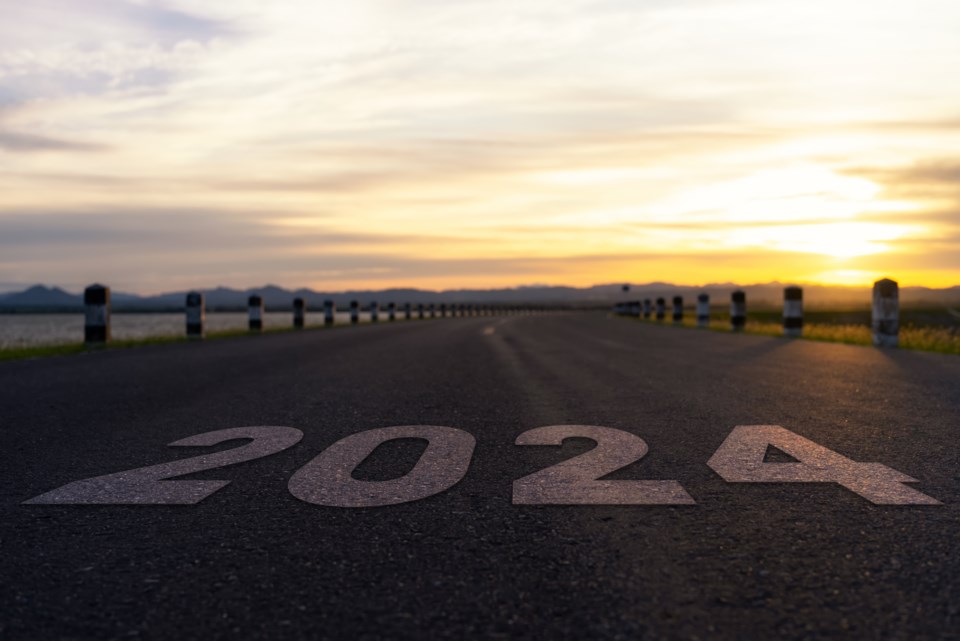As 2023 splutters to a close, it’s easy to feel like the world clipped an edge on a death cookie and is now tumbling towards a steep cliff, shedding bits of equipment as we go.
We’ve got bloody wars (eight in Africa alone), natural disasters, peak political polarization that makes progress difficult, looming environmental catastrophes on every front, economic uncertainty, global crises in housing and affordability, and, to cap it off, so much distraction and disinformation in our public discourse that people can’t even agree on basic facts or what our priorities should be.
It’s tough to be an optimist when the glass is too shattered to gauge how much liquid was inside of it before it was thrown against the wall.
But I like to end things on high notes. I would classify myself as a reluctant optimist, meaning someone who starts off as the worst kind of pessimist, quick to despair before gradually rationalizing all the reasons why everything will probably work out in the end. It’s just as annoying as it sounds.
In that spirit, I can truly say 2023 wasn’t all bad, although it was easy to miss the walnuts in the steaming pile of fruitcake we got served.
For example, as we stare down the prospect of a hotter, drier planet, investment in renewable energy is accelerating. Last year was the first year renewable energy production outstripped coal energy in the U.S. Globally, solar energy manufacturers sold more than 295 gigawatts’ worth of panels, which was more than 45-per-cent higher than the previous record year. That production number is expected to more than triple over the next two years.
Alberta, despite its focus on fossil fuels, installed three-quarters of all wind and solar in the entire country in 2022 after private energy companies in that province did the math.
In Norway, more than 80 per cent of private vehicles sold in 2023 were electric. In B.C., it was almost 21 per cent—far from Norway, but about seven-per-cent higher than the previous year. Canada has also committed to phasing out gas vehicles by 2035, following the lead of California. Car manufacturers have taken notice, with global electric car sales jumping by 68 per cent.
There are also signs nuclear energy may be making a comeback in Canada, with construction getting underway on the first new plant being built in Ontario in decades. Canada also signed onto an international commitment to triple nuclear power generation by 2050.
While there’s no denying we’re incredibly late to be addressing climate change, it seems we haven’t completely given up.
There was other good news on the environmental front as well—the ozone layer is finally healing after an international ban on damaging aerosols, there was a massive EU ban on pesticides that affect bee populations, there were breakthroughs in fusion energy production, and almost 200 countries signed the “high seas” treaty to protect marine life.
There are also signs Canadians are somewhat resistant to our manipulative and negative media environment, which seems hellbent on making everyone feel as angry and hopeless as possible before the next federal election in 2025. A new IPSOS poll found that, despite the non-stop doom and gloom, about 70 per cent of Canadians are at least cautiously optimistic about 2024. That’s up from about 60 per cent at the start of 2023. The world runs on confidence, and we’re not quite out of that yet.
One reason for the upbeat view could be the fact the economy did not technically slide into recession this year as a result of higher interest rates, while inflation is levelling out and the prices of some things have started coming down. A steady GDP won’t solve all of our problems—not even close—but at least it prevents things from getting worse.
Canada’s housing crisis is also finally being taken seriously, with all levels of government stepping up in different ways. Some of the housing initiatives to move forward in the past year include federal funding for low-income housing projects; GST cuts on new rental housing construction; wider bans on overnight rentals through services like Airbnb; and new zoning that allows for single-family homes in Toronto and Vancouver to be converted to, or replaced by, fourplexes, while also doing away with the outdated parking requirements that hamper a lot of new developments.
Another positive story—for me anyway—is the return of consequences through civil suits. Most recently we saw Rudy Guiliani ordered to pay $148 million for maligning two election workers in Georgia. Former President Donald Trump is being sued by the state of New York for lying on financial documents, and was successfully sued for sexual assault. Fox News lost a massive suit launched by a voting machine company after knowingly spreading lies about the 2020 election (later settling for $800 million). Blowhard Alex Jones lost a $1-billion judgment for lying about the Sandy Hook school shooting. The list goes on.
When we wake up on New Year’s Day, at least temporarily committed to our own resolutions, the reality is the world will still be a mess in countless ways. If it helps, it always has been, to some degree—the good old days weren’t as golden as we remember, we just forget what it was like because it all eventually worked out in some way. Here’s hoping 2024 will be no different.




